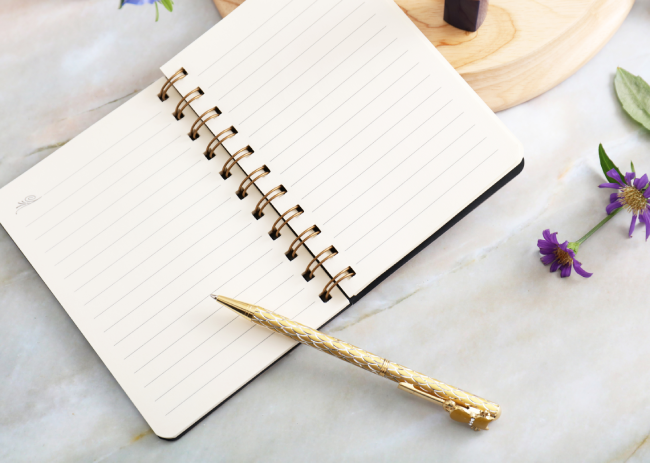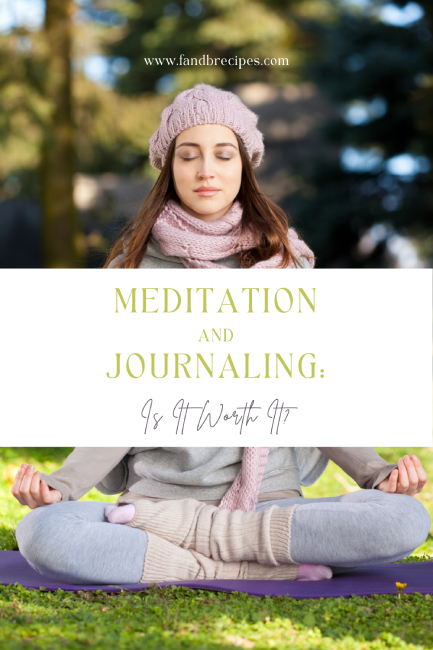Meditation and Journaling: Powerful Tools for Self-Discovery
Have you ever wondered if meditation and journaling could make a significant difference in your life? It’s natural to feel curious or sceptical about their benefits, especially with so many wellness practices to choose from. But what if these two simple yet profound practices could help you find clarity, manage stress, and foster self-awareness?
This article is your gateway to discovering how meditation and journaling, individually and together, can elevate your mental and emotional well-being. Whether you’re a beginner or seeking ways to deepen your practice, let’s explore how these transformative practices can provide more than fleeting moments of peace. By the end, you’ll understand their benefits and how to seamlessly integrate them into your daily life.
What is Meditation?
Meditation often seems wrapped in mystery, but it’s a straightforward practice with profound benefits. To begin with, let’s break it down into simpler terms to understand it better.
At its simplest, meditation is the practice of focusing your mind. It can involve concentrating on a single thought, object, or activity to achieve mental clarity and emotional calmness. However, while it sounds simple, the depth of meditation is found in its consistent practice and the varied techniques it encompasses.
Types of Meditation
Meditation comes in many forms. Of course, each has its unique focus and benefits. That being the case, here’s a quick rundown of some of the forms it can take:
- Mindfulness Meditation: This involves being intensely aware of what you’re sensing and feeling in the moment, without interpretation or judgment.
- Concentration Meditation: This type focuses on a single point, like breathing, a phrase, or a sound.
- Loving-kindness Meditation: This aims to cultivate an attitude of love and kindness towards everything, even a person’s enemies and sources of stress.
- Movement Meditation: This is a more physical form of meditation involving yoga or other gentle movements.
- Twin Heart Meditation: A lesser-known yet powerful type, Twin Heart Meditation focuses on activating the heart and crown energy centres. In truth, it’s believed to promote emotional and mental well-being by radiating love and positivity.
People turn to meditation for various reasons. For instance, some seek relaxation, others desire a spiritual connection, and many look for ways to manage stress or improve focus and concentration. However, no matter the reason, the practice of meditation offers a multitude of benefits, both mental and physical benefits that can significantly enhance your quality of life.
Caption: Meditation helps you explore your deepest emotions.
What is Journaling?
Often perceived as a simple diary entry, journaling is much more. In truth, it’s a powerful tool for personal growth, self-expression, and reflection. Let’s unravel what journaling is and how it can improve your mental and emotional health.
Journaling involves writing down your thoughts, feelings, and experiences. Also, it’s a personal process where you can express yourself without boundaries or rules. The beauty of journaling lies in its flexibility and ability to adapt to your needs and style.
Different Forms of Journaling
Journaling can serve a unique purpose. Here are some common types:
- Traditional Diary: Capturing daily events and personal feelings.
- Gratitude Journal: Focusing on things you’re grateful for and fostering a positive mindset.
- Dream Journal: Recording dreams to explore your subconscious.
- Goal-Setting Journal: Writing down goals and tracking progress.
- Therapeutic Journaling: Using writing as a tool to process emotions and heal.
Interestingly, journaling can complement meditation practices. While meditation helps achieve mental clarity and emotional stability, journaling afterwards can provide insights into your inner experiences. Simply put, it is deepening the impact of your meditation practice.
Understanding the Relationship Between Meditation and Journaling
At first glance, meditation and journaling may seem like two distinct practices. However, when we look closer, their synergistic relationship becomes clear. So, let’s explore how these two activities complement each other, enhancing your self-awareness and mental well-being journey.
Complementary Practices
- Enhanced Self-Reflection: Meditation provides clarity of thought and emotional balance, setting a perfect stage for journaling. After meditating, you can journal with a clearer mind, delving deeper into your thoughts and emotions.
- Reinforcing Learning: The insights gained during meditation can sometimes be fleeting. Fortunately, journaling is a safe space to capture these insights, reinforcing the learning and growth experienced during meditation.
- Stress Reduction: Both practices are excellent stress relievers. Specifically, meditation calms the mind, while journaling allows you to express and process those calm thoughts, effectively reducing stress.
- Building Habits: Pairing meditation with journaling can establish a routine, reinforcing the habit of both. On top of that, this consistency is key to reaping the full benefits of each practice.
- Emotional Release: Meditation brings emotions to the surface. On the other hand, journaling provides a safe space to explore and release these emotions, fostering emotional healing.
- Goal Setting and Tracking: Meditation can help you envision your life goals. At the same time, journaling allows you to articulate and track these goals, making them more tangible and achievable.
A Symbiotic Relationship
Meditation and journaling, when practised together, create a symbiotic relationship. Meditation clears the mind, and journaling provides a canvas to paint your thoughts, ideas, and emotions. This combination enhances self-awareness. Also, it fosters a deeper understanding of one’s inner world.
3 Science-Backed Benefits of Meditation and Journaling
While these practices may seem simple, scientific research has uncovered impressive benefits for both. Therefore, let us look at these findings and see how they can positively impact your life.
#1. Meditation: More Than Just Relaxation
Recent studies have shown that regular meditation can significantly affect the brain and body. For instance, a study published in the journal Psychiatry Research found that people who practised mindfulness meditation for 8 weeks experienced a reduction in the size of the amygdala, the brain area associated with stress and anxiety. In addition, research from Harvard University indicates that meditation can enhance the brain’s ability to process information and improve memory.
Beyond the brain, meditation has been linked to lower blood pressure, reduced symptoms of depression and anxiety, and even improved immune response. As a result, these benefits show that meditation is not just about finding a moment of calm. It rather is about fostering long-lasting changes in both mental and physical health.
#2. Journaling: A Path to Emotional Well-being
Journaling, too, has its share of science-backed benefits, particularly in mental health. A study in the Journal of Experimental Psychology revealed that expressive writing, like journaling, can decrease mental distress and increase well-being. Participants who wrote about their thoughts and feelings for 15–20 minutes on three to five occasions experienced better mood levels and fewer depressive symptoms.
Also, the practice of journaling has been associated with enhanced cognitive functioning. According to a study from the University of Texas at Austin, regularly writing down your experiences and emotions can sharpen your memory and comprehension skills. Thus, by providing a space to process events and emotions, journaling helps declutter the mind, allowing clearer thinking and decision-making.
#3. Combining Practices for Optimal Benefits
When meditation and journaling combine, they create a powerful duo for mental and emotional health. In other words, the reflective nature of journaling complements the mindful awareness cultivated through meditation. This combination enhances self-awareness and equips you with tools to manage stress, anxiety, and other emotional challenges more effectively.
6 Ways to Improve Your Life with Meditation and Journaling
Incorporating meditation and journaling into your daily life can be transformative. These practices offer a moment of calm and foster long-term changes in how you approach life. For that reason, let’s explore how you can effectively integrate these practices into your routine.
#1. Start Small and Simple
Regarding meditation and journaling, the key is to start with small, manageable steps. You don’t need to meditate for an hour or write pages every day. In truth, even a few minutes can make a significant difference. Therefore, begin with a five-minute meditation each morning and a few journaling lines. This approach will help ease you into the practice without overwhelming you.
#2. Create a Routine
Consistency is important to feel the true benefits of meditation and journaling. Therefore, try to incorporate them into your daily routine. You might meditate each morning to start your day with clarity and journal each night to reflect on your day. Ultimately, these practices become a natural part of your daily life by assigning a specific time for these practices.
#3. Use Healthy Time Management
Finding time for activities like meditation and journaling can be challenging in today’s hyperactive world. And that is where using some hacks for healthy time management can be your best ally. You can use small pockets of time throughout your day for these practices. For example, meditate for a few minutes during your lunch break or journal while waiting for an appointment. It’s about maximizing your time and integrating these practices into your schedule.
#4. Use Technology to Your Advantage
In a digital era, technology can be a helpful ally in your journey. As a result, use the numerous apps available that offer guided meditation sessions and journal prompts. Evidently, these tools can be especially useful for beginners needing guidance to get started.
#5. Embracing Flexibility
Since life is unpredictable, there will be days when your routine gets disrupted. On such days, be flexible with your practice. If you miss your morning meditation, try to do a short session later in the day. And, if you can’t journal, consider recording voice notes on your phone. Flexibility ensures you stay committed to your practice, even on hectic days.
#6. Reflecting on Your Progress
Every once in a while, take some time to reflect on how these practices have impacted your life. Soon, you might notice improvements in your stress levels, an increased sense of calm, or better sleep. Acknowledging these positive changes can motivate you to continue with your practice.
How to Start Meditation and Journaling
Embarking on the journey of meditation and journaling can be a game-changer in removing stress from your life and enhancing your overall well-being. However, the prospect might seem daunting if you’re new to these practices. Still, getting started is simpler than you might think. Let’s break down the basics to help you begin with confidence.
#1. Finding Your Space
Identify a quiet, comfortable space where you won’t be disturbed. For example, that could be a corner of your bedroom, a spot in your living room, or even a peaceful outdoor area. Generally, the idea is to find a place to relax without interruptions.
#2. Starting with Meditation
For meditation:
- Choose a Time: Morning or evening are popular choices, but select a time that suits your schedule.
- Simple Techniques: Begin with breathing exercises. Then, focus on your breath and clear your mind of distractions. Guided meditations available online can be helpful for beginners.
- Duration: Start with short sessions of about 5-10 minutes and gradually increase the time as you get more comfortable.
#3. Journaling for Beginners
For journaling:
- Choose Your Journal: Any notebook will do, but you might prefer one that inspires you to write.
- Write Regularly: Aim to write daily. Even a few sentences can be beneficial.
- No Rules: Write whatever feels right. For instance, it could be about your day, feelings, or even random thoughts.
- Reflect: Occasionally, read back through your entries to reflect on your growth and changes in mindset.
#4. Incorporating Both Practices
Once you’re comfortable with the basics, try combining meditation and journaling for maximum benefit.
- Meditate First: Meditate for a few minutes to clear your mind.
- Journal Post-Meditation: After meditation, immediately jot down any thoughts, feelings, or insights that arose during your session.
Best Mindfulness Journals
Choosing the right journal can make a significant difference if you want to enhance your mindfulness practice through journaling. Here are some recommendations for the best mindfulness journals to aid your self-awareness and inner peace journey.
- The Five-Minute Journal. Perfect for busy individuals, “The Five-Minute Journal” encourages daily gratitude practice and reflection. It prompts you to jot down positive affirmations, things you’re thankful for, and your daily goals. This structured format makes it easy to cultivate mindfulness in just a few minutes daily.
- The Mindful Life Journal. This journal is designed to guide you through a year of mindfulness. It includes daily and weekly prompts to help you set intentions, track your progress, and reflect on your mindfulness journey. It’s a comprehensive tool for those committed to a long-term mindfulness practice.
- Breathe: A Mindfulness Journal. “Breathe” is a beautifully designed journal that focuses on mindfulness through creativity. It includes prompts for mindful colouring, doodling, and creative writing. It’s a great choice for those who find solace in artistic expression.
- The Daily Stoic Journal. Drawing inspiration from Stoic philosophy, this journal encourages daily reflection on wisdom, perseverance, and the art of living. It’s a mindful exploration of ancient wisdom that can help you navigate the challenges of modern life.
Meditation Journaling Prompts
Are you ready to explore your meditation and journaling practice more deeply? Meditation journaling prompts can be your guiding light, leading you to profound insights and self-awareness. Here are some prompts to kickstart your journey:
- Gratitude Journaling: Reflect on three things you’re grateful for today. How did they make you feel?
- Mindful Breathing: Describe your breath during meditation. Is it slow, deep, or irregular?
- Emotions Check-In: What emotions arose during your meditation? Write about how they manifested in your body and mind.
- Visualization: Close your eyes and visualize a serene place. Describe it in detail. How did it make you feel?
- Self-Compassion: Write a letter to yourself, offering kindness and encouragement. What advice would you give?
- Mindful Observation: Choose an object in your surroundings. Observe it mindfully for a few minutes. What did you notice?
- Future Intentions: What are your intentions for the day? How can meditation support you in achieving them?
- Mind-Body Connection: Explore the sensations in your body during meditation. Are there areas of tension or relaxation?
- Letting Go: Write about something you’re ready to let go of. How can meditation help you release it?
- Daily Wins: Celebrate your small victories. What did you accomplish today, no matter how minor?
Meditation Journaling Examples
To help you grasp the practical aspect of meditation journaling, here are a few examples that illustrate how to apply it effectively in your daily practice.
- Gratitude Journaling. Begin your journal with a gratitude practice. Reflect on three things you’re grateful for today. For instance, you might write, “I’m grateful for the warmth of the morning sun, the laughter of my loved ones, and the aroma of fresh coffee.” Describe the emotions these moments of gratitude evoke and how they positively affect your mood and outlook.
- Breath Awareness. After a session of mindful breathing, document your experience. Write about the sensation of your breath—its rhythm, depth, and how it changed throughout your meditation. Did your mind wander? If yes, how did you gently guide your focus back to your breath? Be honest about any distractions that arose and how you released them.
- Emotion Exploration. If you are immersed in a particular emotion during meditation, use your journal to delve deeper. For instance, explore its source if you feel a wave of sadness. Write about memories or thoughts that triggered this emotion. In the end, this process of introspection can lead to a better understanding of your emotional responses.
- Intentions and Reflection. Before starting meditation, set an intention, such as “cultivating inner peace.” Afterwards, assess whether you aligned your thoughts and actions with this intention. If you encountered challenges, reflect on how you navigated them. This self-reflection fosters growth and mindfulness in your practice.
- Gratitude at Day’s End. Conclude your meditation practice by listing three things you’re grateful for at the end of your day. It’s an opportunity to encapsulate positive moments and reinforce a sense of gratitude. Reflect on how this practice influences your overall sense of contentment and well-being.
FAQ’s
Should I Journal Before Or After Meditation?
The timing of journaling depends on what works best for you. Some people prefer journaling before meditation to clear their minds. In contrast, others find it more beneficial to reflect on their meditation experience afterwards. Therefore, experiment with both to see which enhances your practice.
Is Journaling The Same As Meditation?
No, journaling and meditation are distinct practices. On the one hand, meditation focuses on mindfulness and being present in the moment, often involving breath control or awareness. On the other hand, journaling involves writing down your thoughts, emotions, and reflections. However, they can complement each other to promote self-awareness.
Can You Journal While Meditating?
While it’s possible to jot down brief notes during meditation to capture insights, keeping these practices separate is generally more effective. Meditating with a clear, uncluttered mind is often more beneficial, and you can journal your thoughts afterwards.
How Do You Start A Meditation Journal?
Starting a meditation journal is simple. First, get a notebook or use a digital journaling app. Then, write about your meditation experiences, thoughts, and emotions. Fortunately, there are no strict rules. It’s a personal reflection tool.
Is Journaling A Form Of Mindfulness?
Yes, journaling can be a form of mindfulness. It involves self-reflection and being present with your thoughts and emotions. In short, it’s a way to cultivate self-awareness and gain insights into your inner world.
What Is Mindful Journaling?
Mindful journaling is the practice of journaling, focusing on being fully present in the moment. Furthermore, it involves writing with intention and self-awareness, using the act of journaling as a mindfulness exercise to explore your thoughts and emotions.
In Conclusion
In conclusion, meditation and journaling are more than just wellness trends—they are transformative tools for fostering mindfulness, self-awareness, and emotional resilience. These practices empower you to navigate stress, enhance focus, and connect with your inner self, leading to a more balanced and fulfilling life.
By starting small, staying consistent, and embracing their synergy, you can unlock lasting benefits for your mental and emotional health. Whether it’s journaling after a morning meditation or reflecting on your day’s gratitude, every small effort counts. Start your journey today, and witness how the combined power of meditation and journaling can positively impact your life.
Shristi is an avid reader, recipe developer and wellness enthusiast. She’s probably making a mess in her kitchen right now.









